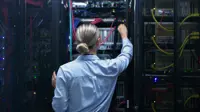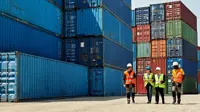Insights
We’ve gathered our insight and expertise into one knowledge base. Explore our advice, research, guides and reports to inform business decisions.

Planning change to unlock UK infrastructure growth
The UK’s Planning and Infrastructure Bill is set to drive growth by enabling economic infrastructure development.

Qatar market intelligence
Qatar’s construction market is advancing with purpose, balancing diversification and sustainability.

Creating a robust construction market in KSA
Saudi Arabia’s construction industry is undergoing rapid transformation.

Sector spotlight: expanding Middle East rail
The Middle East’s continuing economic aspirations are tied to transformative mobility solutions, driven by rapid urbanisation and population growth.

Digital built environment: Hong Kong's BIM policy
Hong Kong's updated building information modelling policy will change the way projects are delivered.

Australia and New Zealand market intelligence
Our latest report highlights that both Australia and New Zealand’s construction markets are experiencing challenges.

Rebuilding construction supply chains in Asia
Disruption or reset? Tariffs, delays and cost swings are forcing change.

Global office fit-out cost guide 2025
Your guide to making smarter, more cost-effective office fit-out decisions.

Canada market intelligence
Our Canada market intelligence report provides market and provincial analysis for the region, as well as economic insights from our team of experts.

Las Vegas market focus
Our Las Vegas market focus provides market, regional and sector analysis, as well as economic insights from our team of experts.
Explore our publications

Data centre cost index 2024

Global office fit-out cost guide 2025




